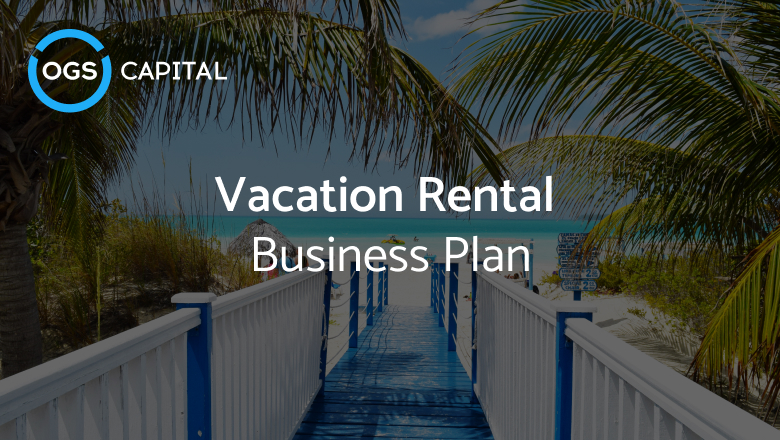Table of Content
1. What Is a Vacation Rental Business Plan?
A document that outlines the goals, strategies, and objectives of a company operating in the vacation rental industry is called a vacation rental business plan. This comprehensive plan assists the company in attaining both financial and operational objectives effectively.
The Resort Business Plan comprises the necessary resources, strategies, and tactics to accomplish desired goals. In addition, the vacation rental property business plan should incorporate financial projections, marketing plans, and comprehensive details about the competitive landscape.
2. Why do we need a Vacation Rental Business Plan?
A well-crafted business plan holds great importance for companies in the vacation rental services industry. This vital document outlines clear objectives, effective strategies, necessary resources, and the skilled personnel required to achieve success. Moreover, it serves as a roadmap for tracking progress and adapting to changes when needed.
A carefully crafted template for a vacation rental business plan offers multiple advantages.
3. What does a Vacation Rental business plan consist of?
Business Goals
The Hotel Feasibility Study plan aims to outline the business’s goals and objectives. This encompasses defining desired outcomes like profitability, customer satisfaction, and market share.
The Executive Summary
The executive summary of a sample vacation rental business plan bears resemblance to the Airbnb business plan. It provides a concise overview encompassing company information, offerings, management team, projected financials, as well as competitive advantages and strategies for success in the market.
Value Proposition
The Vacation Rental business plan aims to outline the value it offers to its customers. This encompasses highlighting the company’s competitive advantages, which consist of convenient locations, competitive rates, and quality customer service.
Company analysis
In the narrative of a Vacation Rental business plan, this particular section aims to offer a comprehensive examination of the competitive landscape, target customers, and potential market opportunities for the company.
Industry analysis
An effective vacation rental property management business plan should thoroughly analyze the industry.
Management Structure and Task Delegation
The management structure and task delegation of a vacation rental owner business plan should outline the roles and responsibilities of each team member and the management hierarchy.
Operations Plan
The operations plan of a Vacation Rental business plan should outline the necessary steps for the business to become operational.
Financial Plan
The financial plan of a vacation rental business plans should include a detailed financial analysis, including projected income statements, cash flow statements, balance sheets, and break-even analysis.
Revenue management plan
These encompass determining pricing, managing inventory, implementing special offers and promotions, and devising marketing and sales approaches.
Customer Analysis
A customer analysis is used to determine the target market and customer needs.
Competition Analysis
When examining the competition within the Vacation Rental industry, it is crucial to thoroughly assess their strengths, weaknesses, opportunities, and threats.
Marketing Analysis, Strategy, and Distribution plan
The marketing analysis examines the current market conditions and identifies customer needs. This entails evaluating the market’s size, growth, and the preferences of potential customers. The marketing strategy and distribution plan lay out how the vacation home rental business will promote its services and reach prospective customers.
Making plans for the future and Key milestones
The future plan of the Vacation Rental business outlines its goals and objectives. It encompasses the desired outcomes, including profitability, customer satisfaction, and market share. This section also explains the key milestones and outlines the necessary activities and steps to achieve the business’s goals.
Appendix
The appendix of the Vacation Rental business plan contains additional information that includes financial projections, detailed market analysis, customer profiles, and sample marketing materials.
4. Sources of funding for Vacation rental business plan
- Bank Loans: Traditional bank loans are a common source of business funding. Entrepreneurs can approach banks and financial institutions when seeking business loans. This may include presenting a well-structured business plan providing collateral as security.
- Small Business Administration (SBA) Loans: The U.S. Small Business Administration offers loan programs specifically tailored to support small businesses. These loans often come with favorable terms and may be more accessible for entrepreneurs who do not qualify for traditional bank loans.
https://www.nar.realtor/small-business-administration-sba-loans-for-real-estate - Crowdfunding: Crowdfunding platforms like Kickstarter or Indiegogo allow entrepreneurs to raise funds by pitching their business ideas to many individuals. In return for their financial support, backers may receive rewards or equity in the business.
https://fundrise.com/
https://www.crowdstreet.com/ - Angel Investors: Angel investors are individuals or groups who provide financial backing to startups in exchange for equity or ownership stakes.
- Venture Capital: Venture capital firms invest in high-growth startups in exchange for equity. They typically concentrate on businesses that possess innovative ideas and demonstrate substantial potential for growth.
- Business Incubators and Accelerators: Startups derive multiple benefits from participating in these programs. They receive funding, mentorship, and access to valuable resources that facilitate their growth.
- Grants and Government Programs: Depending on the location and nature of the vacation rental business, grants or government programs may be available to support startups in the tourism or hospitality industry. Research local and regional programs that offer financial assistance to businesses in your specific sector.
https://www.canadastartups.org/government-funding-for-vacation-home-rental-agency-business/
https://granicus.com/blog/american-rescue-plan-funding-and-short-term-rentals-connecting-the-dots/
5. Common mistakes to avoid in vacation rental business plans
- Not doing enough market research: Before investing in a business plan for a vacation rental house, it is important to understand the local market. Market research should include demographics of the area, competitors, pricing, and availability.
- Not accounting for additional expenses: Vacation rental businesses involve more than just the purchase of properties. Additional expenses such as taxes, insurance, and maintenance should be accounted for when drafting a business Real Estate Business Plan.
- Not diversifying revenue streams: Vacation rental businesses should have multiple sources of income.
- Not considering legal and compliance risks: Vacation rental businesses are subject to different laws and regulations depending on the city, county, and state.
- Not having a plan for marketing: A comprehensive marketing plan should be included in a vacation rental business plan.
- Not having a plan for customer service: Providing a high level of customer service is essential for success in the vacation rental business.
6. What should you prioritize in your vacation rental business plan?
Highly Efficient Service
Highly Efficient Service! I am incredibly happy with the outcome; Alex and his team are highly efficient professionals with a diverse bank of knowledge.
When developing a business plan for a vacation cabin rental, prioritizing key elements is crucial for achieving success. These elements encompass financials, marketing strategies, operational processes, legal considerations, and exceptional customer service.
Financials should be the first priority. Determining the start-up and operational costs, as well as projecting income streams, is crucial. Additionally, creating a budget and diligently tracking experiences ensures efficient operations.
Marketing should also be a priority. To attract potential customers and generate revenue, creating an effective marketing plan for a vacation rental company is important. Consider utilizing various marketing strategies, including online advertising, social media campaigns, and traditional methods.
To ensure smooth operations in the vacation rental business, a well-crafted management plan is essential. This comprehensive plan should encompass various aspects, including staff schedules, operational policies, and overarching goals. Equally important is prioritizing customer service to provide a positive and memorable experience for all guests during their stay at the property.
7. Business plans for vacation rentals: tips and tricks
- Market Research: Thorough market research is crucial for understanding the demand, competition, and trends in the vacation rental industry. By identifying your target market and tailoring your business plan to meet their specific needs, success in this sector can be ensured.
- Financial Projections: Develop realistic financial projections by considering startup costs, operating expenses, and revenue potential. Include contingencies for unexpected expenses and fluctuations in the market.
- Unique Selling Proposition (USP): Clearly define your USP and highlight what sets your real estate vacation rental business plan apart from the competition. It could be unique amenities, exceptional customer service, a prime location, or a niche market focus.
- Pricing Strategy: Determine a competitive and profitable pricing strategy based on factors such as location, property size, amenities, seasonality, and market demand. Consider adjusting rates based on occupancy rates and market trends.
- Property Management: Outline your property management strategy, including maintenance, housekeeping, guest services, and reservation systems.
- Marketing and Distribution: Develop a comprehensive marketing plan that includes online and offline strategies to reach your target audience.
- Customer Service: Outline your customer service initiatives, including guest communication, check-in/check-out processes, and resolving guest inquiries or issues promptly. Emphasize how you will prioritize guest satisfaction and repeat bookings.
- Regulatory and Legal Considerations: Address any legal and regulatory requirements specific to vacation rentals in your target location.
- Monitor Key Performance Indicators (KPIs): Define relevant KPIs such as occupancy rates, average daily rate (ADR), guest satisfaction scores, and revenue per available room (RevPAR). Regularly track and analyze these metrics to evaluate your business’s performance.
8. OGS Capital – Your Trusted Vacation Rental Business Plan Consultants
OGS Capital possesses extensive experience in assisting entrepreneurs in developing successful vacation rental business plans. Our team of skilled consultants has collaborated with vacation rental companies of all scales, ranging from startups to established enterprises, to craft comprehensive and customized business plans that cater specifically to the needs of the entrepreneur and the industry.
We will then tailor a customized plan specifically tailored to address your unique requirements. Additionally, by leveraging our proficiency in financial forecasting, we are capable of providing you with detailed cash flow projections as well as long-term estimates.
If you’re interested in creating a successful vacation rental business plan, don’t hesitate to get in touch with OGS Capital today. They have the expertise to guide you towards winning strategies.
9. FAQ
- Q. How much money do you need to vacation rental business?
The cost of starting a vacation rental business varies depending on its size and scope. This includes expenses like property purchase or rental, furnishings, insurance, marketing, and administrative costs. Startup costs can range anywhere from $5,000 to $100,000 or more, depending on the market. - Q. Do you need a business plan for a vacation rental business?
It is highly advisable to develop a comprehensive business plan for any kind of business, including a vacation rental venture. A well-prepared business plan for such a business endeavor should encompass essential components like market analysis, detailed property description, strategic marketing plan, sound financial blueprint, and an efficient operational strategy.
Download Vacation Rental Business Plan Sample in PDF
OGSCapital’s team has assisted thousands of entrepreneurs with top-rated document, consultancy and analysis. They’ve helped thousands of SME owners secure more than $1.5 billion in funding, and they can do the same for you.













